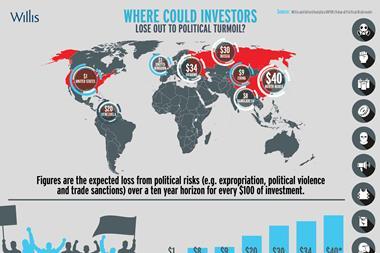Editor Mike Jones says the result of the UK general election has provided a boost to business but dangers lie ahead

It was meant to be the closest election in living memory but when the UK public in May voted for their next government they delivered an unexpectedly decisive verdict.
Months of conjecture about the inherent dangers of a hung parliament and speculation around which party could break down the necessary political barriers to secure itself a viable and stable coalition came to nothing.
Instead of an impotent stalemate, David Cameron’s (pictured, right) Conservative Party defied the predictions of a raft of opinion polls to secure enough seats to rule alone with a small working majority that should just about hold firm for five more years.
Such a result was considered highly improbable by experts across the political spectrum until their views were contradicted spectacularly by the first exit poll moments after voting stopped at 10pm on 7 May.
‘The Conservatives’ political agenda is a risky one which threatens to partition not only the UK from Europe but also divide the country itself’
While some pundits scoffed in disbelief and sought to discredit the poll, the City needed no further persuasion. Its relief was both palpable and immediate. Within seconds of that post election prediction being released, the prospect of a Conservative majority propelled Sterling almost two cents higher against the US dollar following weeks of persistent downward pressure.
By the time the UK stock exchange opened the following morning, the uncertainty which had drifted for weeks around the markets like a choking fog suddenly lifted and with it the mood of traders of all persuasions. Currency, equity and bond markets all moved in a sharp upwards trajectory.
Concerns about political deadlock removed, the Conservatives are now free to continue with renewed vigour their growth through austerity economic programme. This has been credited with giving the UK fiscal stability in the wake of the global financial crisis and won praise from the International Monetary Fund for laying secure foundations for the UK’s economic future. However, it has also come at a price with criticism from opponents who cite the cutbacks as being too restrictive, socially divisive and an inhibitor to genuine economic development. And there are more spending cuts to come – even deeper this time.
Market jitters alleviated, some wider risks for companies operating in the UK also eased post election. The main opposition Labour party, which was routed at the ballot box, had threatened greater regulation and increased taxation for companies, with those under non-UK ownership coming under particular scrutiny.
The majority of firms believe they can now look forward to an economy which, for the time being at least, continues to strengthen and prosper.
However, such optimism might need to be tempered in light of other concerns which already threaten to cast a shadow over the UK far beyond the five-year term of the current parliament. For the Conservatives’ political agenda is risky one which threatens to partition not only the UK from Europe but also divide the country itself.
The UK has long been an outsider within the EU - detached by physical geography and, increasingly, ideology. It is understandable therefore that surprise at the Conservatives’ election win was met with dismay in many European capitals, for it effectively fired the starting gun on a debate which ultimately will decide the UK’s role and future in the European Union.
Two years ago Cameron promised the British people the chance to vote in an in-out referendum to decide whether or not the country stayed part of the EU. This referendum would, he pledged, take place in 2017 provided the Conservatives won power in 2015, which they have now duly done.
Ahead of any referendum, Cameron has vowed to restore to UK government control certain decision-making powers from Brussels, particularly around immigration and the welfare rights of migrants. These are hugely controversial and complex issues. Nonetheless, Cameron’s stated aim is to secure enough concessions to convince the British electorate that remaining in the EU is in the UK’s best interests. Should Cameron get the powers he demands he has vowed to campaign for the UK to remain part of the EU “with all my heart and soul”. Failure to do so cannot be an option for Cameron but it remains a very realistic possibility.
It is a high stakes gamble from Cameron for a number of reasons. First there is no guarantee Britain’s EU partners will agree to his demands and cede control of anything – particularly given the rapid timescale for negotiation proposed by the British government. Some of the changes go right to the core of the EU’s central values in terms of freedom of movement, for example. The proposals also beg the question of why the UK should be given special status when many of the issues at stake are equally as divisive within other EU countries. If the UK is granted preferential privileges then it is quite feasible other nations are likely to demand concessions of their own and what does this then mean for the future of the EU itself, particularly given the continuing problems around the Greek economy?
Even if Cameron does win back from Brussels control of the powers requested, there is still no guarantee that this will be enough to convince British voters to remain within the EU. The United Kingdom Independence Party might have won only a solitary seat at Westminster in May but they received more than 12 per cent of the vote.
It is hard to tell from the results of an election where many issues are at stake just how much the UKIP vote was driven solely by its opposition to the EU but it does indicate that Cameron might not get the referendum result he seeks, particularly when one considers that many members of his own party are Euro-sceptic as, indeed, are a sizeable group of Conservative voters.
A Britain out of Europe would be a disaster for both sides economically, particularly from a business perspective, as although it might open up new markets, it would impinge on the UK’s ability to operate with its largest trading partner.
UK business leaders estimate that the country’s EU membership adds around £100billion per year to its economy a figure which cannot be ignored but is seldom discussed by the wider public whose opinions on Europe are often shaped by concerns over migration, human rights and rules over whether or not eggs can be sold by the dozen
With a right-wing populist media driving much of the anti-EU rhetoric, it is difficult to predict which way any referendum might go.
Cameron would be wise to learn from the chastening experience of last year’s referendum on Scottish independence which saw the people of Scotland vote narrowly in favour of remaining part of the UK. The British Prime Minister had banked on such an outcome being relatively straightforward and this resulted in a campaign which was complacent – some might argue, almost negligent. It allowed those supporting independence to take control of the narrative to such an extent that the nationalists almost stole victory and continue to dictate the agenda despite losing.
While their efforts ultimately failed to achieve the objective of independence, they reinvigorated Scottish nationalism and remain a painful thorn in the side of Cameron’s Conservatives. In the May general election the Scottish National Party won almost every available seat in Scotland and increased their representation at Westminster from six to 56. This astonishing performance now makes the SNP the third largest party in the UK by virtue of seats, if not percentage of votes.
In a sense Cameron has some cause to be grateful for the SNP fervour because it prompted many people to vote Conservative to thwart an SNP-Labour coalition which looked the most likely government in the run up to election day.
It is doubtful that Cameron will show much gratitude to the SNP for this but he will be forced to deal with the party’s demands at some stage.
Even with his new administration in its infancy, Cameron was facing pressure to give Scotland more control of its affairs with MPs from his own party urging him to “call the SNP’s bluff” and grant them full fiscal autonomy. While the British government has ruled out such a move, the power of the SNP is now so strong there is every likelihood that Cameron will be forced to give the Scots another independence referendum sooner rather than later.
The SNP has proved to be extremely skilful at mobilising its supporters and may well succeed in a second poll and end a union which has lasted more than 300 years. Once again, such a vote would raise serious questions for businesses on both sides of any border.
Cameron, of course, is aware of many of the dangers ahead on the path he has chosen to follow. This is why in the PM’s first speech following his election victory, Cameron spoke powerfully about being a “One-Nation” Conservative.
“I want to bring our country together, our United Kingdom together, not least by implementing as fast as we can the devolution that we rightly promised and came together with other parties to agree both for Wales and for Scotland,” he said. “In short, I want my party, and I hope a government I would like to lead, to reclaim a mantle that we should never have lost – the mantle of One Nation, one United Kingdom.”
The message was clear both to the British public and also those in his own party that the country is better served by staying together. Whether Cameron succeeds or rips Britain apart is very much open to question. This is a genuine political, economic and business gamble in which the risk of losing is all too real.




















No comments yet